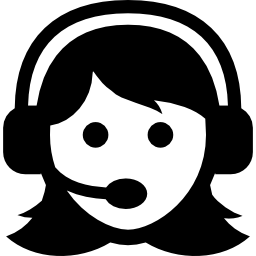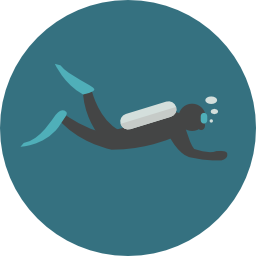3 Myths About Learning a Language, Which is Not English
Raise your hands if you have tried and failed to learn a language?
Though I can’t see you, I won’t be too surprised if many hands spring up.
The struggle to master a language is common, especially for adult learners with a full-time job. If you are a native English speaker or have the ability to communicate all right in English, acquiring another language is even more challenging.
You have probably heard this joke: A ”bilingual” is someone who speaks two languages, a “trilingual” is someone who speaks three languages. What do you call someone who speaks only one language? It’s an American.
I found the joke too harsh on the Americans who are fluent in a second or third language, but the statistics seem stacked against them. According to SwiftKey data, the least multilingual countries in the world happen to be three predominant English speaking countries: Australia, the US and the UK. The percentage of people who speak more than one language in those countries are 12.5%, 13.8% and 14.4% respectively, rather modest compared to countries like Israel (74.7%) or Sweden (51%).

Because of the noticeable gap, one can’t help wondering about the reasons. How come some people, from some places, can speak another language so well while it seems impossible for others. I ponder over that question personally with my failed attempt to learn French. I am not saying that there is a perfect answer for everyone, but I’ve found three myths about language learning that hold back some of us.
In this post, I will also provide some tips to debunk those myths so you can start crossing the beginner line and en route to becoming a master in another language.
1) Everyone speaks English (or has Google Translate on their phone)
Well, it is true that more and more people speak English. The language has indeed become the lingua franca for both business and leisure. It’s impossible to know the number of conversations in English happening every day all over the world, but there was an estimation of more than 1.5 billion English speakers worldwide in 2015.
1.5 billion is not everyone but a substantial portion of the global population. Personally, through out the years, I find it easier and easier to do business in English. I can now travel to many non-English speaking countries and get by without knowing the local tongue.
When I first moved to Amsterdam, I was in awe of the fact that many Dutch people speak English fluently. That includes the teenagers! Perhaps Dutch toddlers don’t, but I don’t have many of those in my network so I can’t vow for it.
The conclusion?
If you choose to live abroad in countries like the Netherlands, Denmark or Singapore, and frequently go on holidays to exotic islands or ancient cities, you will be able to get by without knowing the local language as long as you can communicate in English.
The keyword here is “get by”, though. You will miss out on subtle things: the humour, the cultural nuances, the insider feeling, and the local friends.
I have a Dutch colleague who lives and works in a rural province of Vietnam for three months a year. The countrymen and women don’t speak much English, so he goes to Google Translate for help. He could get food, do his work and ride his motorbike through beautiful paddy fields, but Google Translate doesn’t get his jokes.
So what do you do if you speak English natively or fluenty?
First of all, you are lucky. However, if you want to learn another language, you should:
-
Stop speaking English
You can only learn a language if you start talking in it. So say goodbye to English. It doesn’t have to be altogether at first! You can start with small steps.
If you are travelling to Italy this summer, for example, learn some Italian pleasantries. Say thanks to the Airbnb host in Italian. You might not sound perfect, but you will see that the locals appreciate it. After appreciation comes motivation.

-
Go out of your comfort zone
Go where you can’t speak English and see what you miss out. Talk tokids. Go camping in the forest in Germany. Take in the scolding in the voice of a French waitress when you try to order food in English, then you will want to learn French.
2) I am no longer at a school-age
Fact: It is indeed easier for kids to learn languages.
Check out how an eight-year-old girl learned to speak 8 different languages. That is also not the only example of children that become polyglots before they reach their teenage years.
We adults, unfortunately, could be in a position that offers enough independence, comfort, social status or even a sense of superiority that we don’t need to make an effort to learn the language or don’t want it enough.
You can’t go back in time to be a kid, but you can adopt the mentality of no-fear. I found that being new to a country could make one fearless. If you don’t know anybody, who is there to judge your accent? You can get away with making mistakes because you are new. When you first move to a city, it’s the best time to learn a language as fast as possible. However, if this is not your case, here are some tips to stop worrying and start speaking a foreign language:
-
Practice with a total stranger
If you are unlikely to see them again, it doesn’t matter when they laugh at your mistakes. Right? It can’t hurt you.
-
Have a drink and a chat
This strategy might be frown upon, but after a drink, we tend to lose many of our inhibition and worries. Enough language learners have reported speaking a foreign language better with the help of alcohol. Be responsible, though!
-
Find your gang
Join a Facebook Group or a suitable Meetup to find other adults who have succeeded at learning a language. You will see that you are not alone because many people make it without being at a school-age.
-
Get a professional tutor
On the Myngle platform, you can easily find a great teacher who has experience with teaching adults.
3) It will take too muchtime as I’m not gifted
This “gifted” reasoning is total nonsense.
Yes, some people show an ability to catch a sound better than others or a few children speak some foreign phrases for no apparent reason. However, mastery takes practice. It means time and sweat.
Many gifted children had difficulties in mastering things later in life because they get the first few things so easily. They aren’t accustomed to failure and perseverance, which are essential to mastery.
The time-consuming part is correct. A quote from the great work Mastery: “It takes 10,000 hours.”
However, here are ways to learn faster by using your time more efficiently.
-
Firstly, it’s the quality of your attention that counts.
If you focus on the task, giving it 100% of your mental capacity (instead of 30% while you are scrolling down your Facebook page and checking Instagram), you’ll get there faster.
-
Secondly, you can adopt a suitable language immersion strategy.
Here are some simple techniques you can try:
-
Change the language of your phone into the language you are learning
-
Have the sound of that tongue in the backgroundall the time
-
Incorporate it into your workout session
-
Read more about four tips for online language immersion in our previous post.
These are the three most common myths about language learning. I hope by now, you have understood the reasons behind the myths that are holding you back. Try out the strategies outlined in this post, and you will see improvement in your language skills.
Finally, if you like what you read, subscribe for more tips on language training:
Subscribe to our blog
About the author:
 Quynh Nguyen writes about productivity for individuals and teams while travelling the world. She loves learning languages, riding a bike and having many nice cups of tea. Connect with her @QuynhThuNguyen or visit her at www.quynh.nl
Quynh Nguyen writes about productivity for individuals and teams while travelling the world. She loves learning languages, riding a bike and having many nice cups of tea. Connect with her @QuynhThuNguyen or visit her at www.quynh.nl
Explore posts in the same categories: Uncategorized









September 5th, 2019 at 3:45 pm
The above information was very helpful. Thank You.